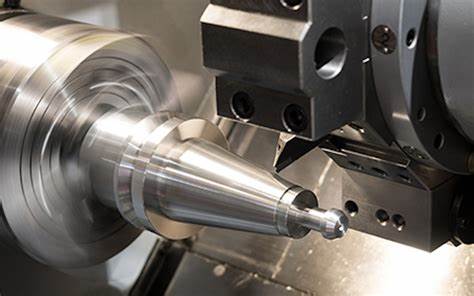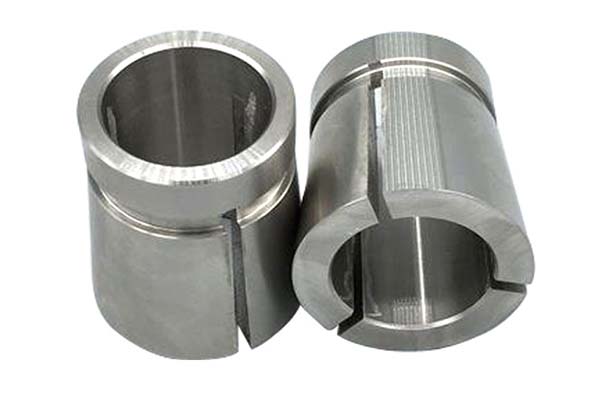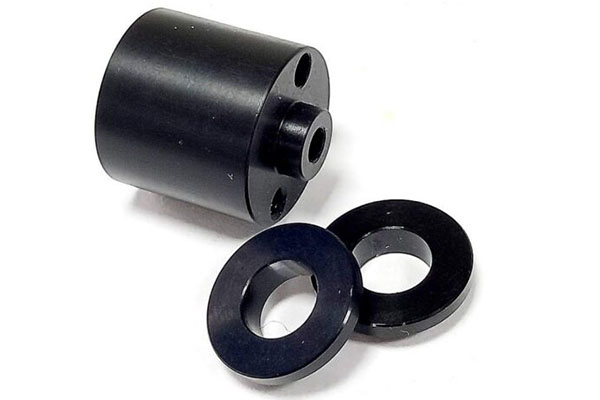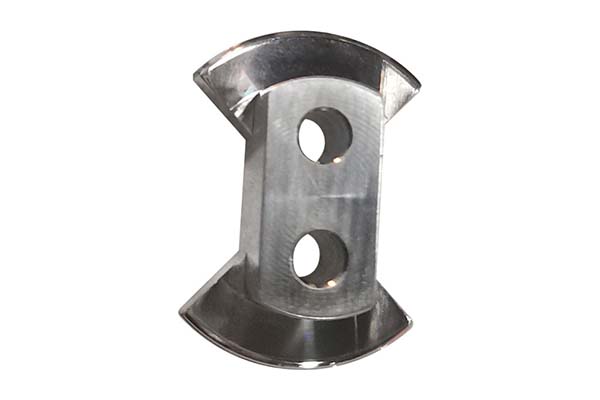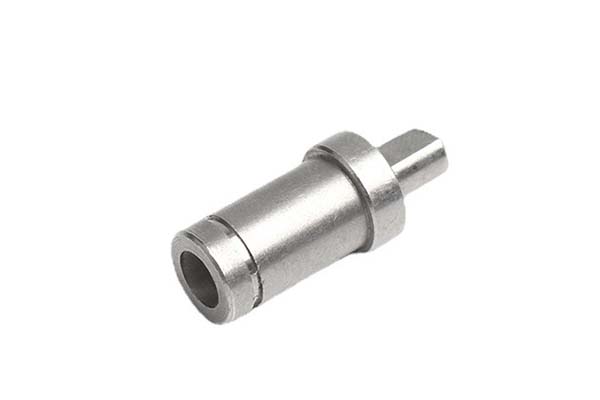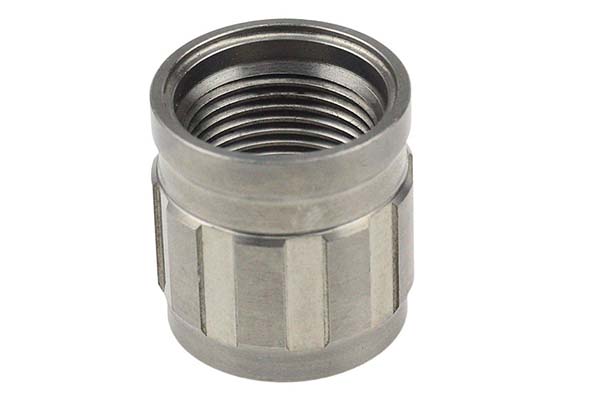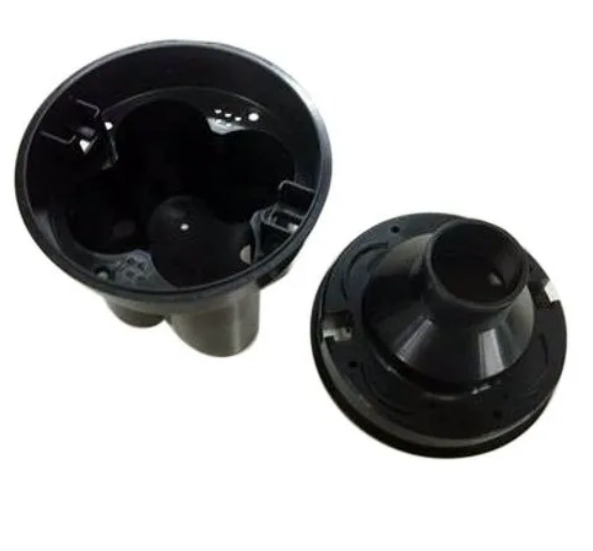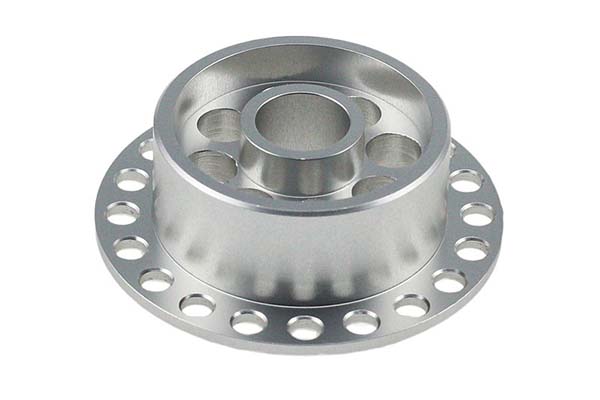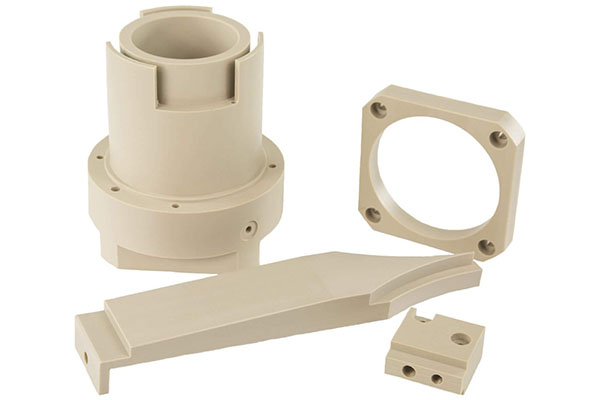What are Machining Services?
Machining services refer to a series of manufacturing processes that use various machine tools and techniques to transform raw materials, such as metals, plastics, and composites, into precisely shaped and dimensioned parts or products. These services play a pivotal role in the manufacturing industry, acting as the backbone for the production of components across countless sectors, from automotive and aerospace to medical and electronics.
In the manufacturing landscape, machining services are the cornerstone for creating high - precision parts. Without them, the production of complex and accurate components that power modern technology would be nearly impossible. For example, in the aerospace industry, where the margin of error for components like turbine blades is extremely small, machining services ensure that these parts are fabricated to exact specifications, enabling engines to operate with maximum efficiency and safety. Similarly, in the medical field, machining services are used to create custom - made implants and surgical instruments, where precision is crucial for patient well - being.
Types of Machining Services
CNC Machining
CNC (Computer Numerical Control) machining is a process that uses pre - programmed computer software to control the movement of factory tools and machinery. The working principle involves translating a 3D model from computer - aided design (CAD) software into a set of instructions (G - code) that the CNC machine can understand. These instructions direct the machine to precisely control the movement of the cutting tools, such as milling cutters, drills, or lathe tools, with respect to the workpiece.
The advantages of CNC machining are numerous. First and foremost, it offers an extremely high level of precision, often achieving tolerances in the micron range. For example, in the aerospace industry, parts produced by CNC machining for aircraft engines can have tolerances as tight as ±0.001 inches, ensuring optimal performance and safety. Secondly, it has remarkable repeatability. Once a program is set up, the CNC machine can produce identical parts time after time, making it ideal for mass production.
CNC machining finds applications in a wide range of industries. In the automotive sector, it is used to manufacture engine components like cylinder heads and crankshafts. In the medical field, it is utilized to create customized prosthetics and dental implants. For instance, a patient - specific knee implant can be precisely machined using CNC technology to ensure a perfect fit and maximum functionality.
Die Casting
Die casting is a metal - casting process in which molten metal is forced into a mold cavity under high pressure. The process begins with the creation of a die, which is a two - part mold made from hardened steel. The molten metal, such as aluminum, zinc, or magnesium alloy, is then injected into the die cavity through a runner system. Once the metal solidifies, the die is opened, and the casting is ejected.
Different die - casting materials have distinct characteristics and applications.
- Steel: Steel die - cast parts offer high strength and durability. They are suitable for applications that require resistance to wear, high temperatures, and heavy loads. For example, in the construction equipment industry, steel die - cast components are used in hydraulic systems due to their ability to withstand high - pressure environments. However, steel die - casting is more expensive due to the higher melting point of steel and the more complex processing requirements.
- Aluminum: Aluminum is a popular choice for die - casting because of its low density, high thermal conductivity, and good corrosion resistance. It is widely used in the automotive industry for manufacturing engine blocks, transmission housings, and wheels. Aluminum die - cast parts are also common in the electronics industry, where their lightweight and heat - dissipating properties are highly valued, such as in laptop computer cases.
- Brass: Brass, an alloy of copper and zinc, is known for its excellent machinability, corrosion resistance, and aesthetic appearance. It is often used in the production of decorative items, plumbing fixtures, and musical instruments. For example, brass is the material of choice for making high - quality saxophones due to its unique sound - producing properties and attractive finish.
Sheet Metal Fabrication
Sheet metal fabrication is a process that involves cutting, bending, and assembling flat sheets of metal to create a wide variety of products. The process typically starts with the cutting of the sheet metal to the desired size and shape using tools like shears, laser cutters, or waterjet cutters. After cutting, the metal is bent into the required form using press brakes or other bending equipment. Finally, the individual parts are assembled through methods such as welding, riveting, or fastening with screws and bolts.
In the construction industry, sheet metal is used to make roofing panels, ductwork for heating and cooling systems, and architectural accents. In the electronics industry, sheet metal enclosures are fabricated to protect sensitive electronic components from environmental factors and provide structural support. For example, the outer casing of a desktop computer is often made from sheet metal, which is first cut into flat pieces, bent to form the sides and top, and then assembled to house the motherboard, hard drive, and other components.
Plastic Injection
Plastic injection molding is a manufacturing process where molten plastic is injected into a mold cavity. The process begins with the plastic material, which can be in the form of pellets, being fed into a hopper and then into a heated barrel. Inside the barrel, the plastic is melted by a combination of heat and mechanical shear forces generated by a rotating screw. Once melted, the plastic is forced under high pressure into a closed mold cavity through a nozzle and a runner system. After the plastic has cooled and solidified in the mold, the mold is opened, and the finished part is ejected.
The choice of plastic material has a significant impact on the properties of the final product. For example, Polyethylene (PE) is a common plastic used in injection molding. Low - density polyethylene (LDPE) is flexible and has good chemical resistance, making it suitable for products like plastic bags and food containers. High - density polyethylene (HDPE) is more rigid and has higher strength, so it is often used for products such as milk jugs and industrial containers. Polypropylene (PP) is another popular material. It has a high melting point, good chemical resistance, and excellent fatigue resistance. PP is used in applications such as automotive interior components, appliance parts, and reusable food storage containers.
Key Factors to Consider When Choosing Machining Services
Precision and Tolerance
Precision and tolerance are critical aspects when evaluating machining services. Precision refers to how closely a machined part matches the desired dimensions, while tolerance is the acceptable deviation from the nominal dimensions. High - precision machining is essential in industries such as aerospace, medical, and electronics, where even the slightest deviation can lead to significant performance issues or safety risks.
| Machining Service | Typical Precision (Tolerance Range) | Applications Requiring This Precision |
| CNC Machining | ±0.001 - 0.01 inches | Aerospace components like turbine blades, medical implants |
| Die Casting | ±0.01 - 0.05 inches | Automotive engine blocks, some consumer electronics housings |
| Sheet Metal Fabrication | ±0.01 - 0.03 inches | Electronic enclosures, architectural components |
| Plastic Injection | ±0.005 - 0.02 inches | Small plastic parts for electronics, consumer goods |
For example, in the production of a micro - electronic component, a tolerance of ±0.001 inches is crucial. If the tolerance is not met, the component may not fit properly into the circuit board, leading to malfunctions. High - precision machining not only ensures the proper functionality of the parts but also reduces the need for rework, saving both time and cost in the long run.
Material Compatibility
The choice of machining service should be compatible with the material being processed. Different materials have unique properties that affect the machining process. Here are some common materials and their compatible machining services:
- Steel: Steel is a strong and durable material. CNC machining can handle steel well, allowing for the creation of complex shapes with high precision. Die casting can also be used for steel, but it is more challenging due to its high melting point. Sheet metal fabrication is suitable for thin - gauge steel sheets to make products like enclosures and brackets.
- Aluminum Alloy: Aluminum alloys are lightweight and have good thermal conductivity. They are highly suitable for CNC machining, die casting, and plastic injection (in the form of aluminum - filled plastics). In die casting, aluminum alloys are popular for automotive parts due to their ability to be cast into complex shapes easily.
- Copper: Copper has excellent electrical and thermal conductivity. CNC machining can be used to create copper components with high precision, such as electrical connectors. Sheet metal fabrication can produce copper sheets for heat sinks or electrical shielding.
- PVC (Polyvinyl Chloride): PVC is a common plastic. Plastic injection molding is the primary method for producing PVC parts, such as pipes, fittings, and some consumer product casings. It can also be machined using CNC for more customized and precise parts, although it may require special cutting tools to prevent melting and deformation.
Production Volume
The production volume plays a significant role in determining the most suitable machining service.
- Small - Batch Production: For small - batch production (usually less than 100 - 500 units), CNC machining is often a great choice. It offers high flexibility, as it can quickly adapt to design changes. Each part can be customized without significant additional costs. For example, when a company is developing a new product prototype or producing a small number of specialized components, CNC machining allows for rapid iteration and precise manufacturing. Sheet metal fabrication can also be suitable for small - batch production of sheet - metal - based products, as the setup time for simple cutting and bending operations is relatively short.
- Large - Batch Production: In large - batch production (thousands or more units), die casting and plastic injection become more cost - effective. Die casting can produce large quantities of metal parts with high efficiency once the die is created. Although the initial die - making cost is high, it is offset by the low cost per unit in high - volume production. Plastic injection is ideal for producing large numbers of plastic parts. The high - speed injection process can quickly fill the mold cavities, making it suitable for mass - producing items like plastic toys, household appliances components, and packaging.
Yigu Technology's Perspective
As a custom supplier of non - standard plastic and metal products, Yigu Technology brings a wealth of experience and distinct advantages to the table in machining services.
When it comes to material selection, Yigu Technology's expertise shines. The company has an in - depth understanding of a wide range of materials, from various grades of metals like stainless steel, aluminum alloys, and copper, to different types of plastics such as ABS, PVC, and PEEK. For example, in a project for a high - end electronics manufacturer, Yigu Technology recommended a special grade of aluminum alloy with excellent heat - dissipating properties for the production of device enclosures. This not only met the client's requirements for lightweight and corrosion - resistance but also enhanced the overall performance of the final product.
In terms of process control, Yigu Technology maintains strict standards. The company invests in state - of - the - art machinery and employs highly skilled technicians. In plastic injection molding, Yigu Technology's technicians precisely control parameters such as temperature, pressure, and injection speed. This ensures that the plastic parts produced have consistent quality, with tight tolerances and smooth surfaces. For metal machining, whether it's CNC milling or turning, the company adheres to strict quality inspection procedures at every stage of production. This dedication to process control results in high - quality non - standard products that meet and often exceed client expectations.
FAQ
What is the difference between CNC machining and traditional machining?
CNC machining uses pre - programmed computer software to control machine tools, while traditional machining relies mainly on manual operation of the machine tools by machinists. In terms of precision, CNC machining can achieve much higher precision, often with tolerances in the micron range, while traditional machining may have a tolerance range of ±0.01 - 0.1 inches depending on the skill of the operator. CNC machining offers high automation, which can run continuously with little human intervention once the program is set up. In contrast, traditional machining requires constant operator attention during the machining process. For production efficiency, CNC machining is more suitable for mass production due to its high repeatability and continuous operation ability, while traditional machining is often better for small - batch production or one - off custom jobs where the flexibility of manual operation can be an advantage.
How do I choose the right material for my machining project?
First, consider the product's use environment. If it will be exposed to high temperatures, materials like heat - resistant alloys (such as some stainless steels or nickel - based alloys) should be considered. For applications where corrosion resistance is crucial, materials like aluminum alloys or certain plastics can be good choices. Second, think about the performance requirements. For high - strength components, steel or titanium alloys might be suitable. If the part needs to be lightweight, aluminum or specific lightweight plastics could be the right fit. Additionally, cost is also a factor. Common materials like mild steel are usually more cost - effective than exotic metals. You can also consult with machining service providers or material experts who can offer more in - depth advice based on their experience.
What is the typical lead time for machining services?
The lead time for machining services depends on several factors. For small - batch CNC machining, it usually takes about 1 - 3 weeks, which includes programming the machine, setting up the tools, and machining the parts. Die casting, especially for large - batch production, may have a lead time of 4 - 8 weeks. This is because creating the die takes time, and there are also processes like mold testing and production runs. Sheet metal fabrication for small - scale projects can be completed within 1 - 2 weeks, while for large - scale and complex projects, it may take up to 4 weeks. Plastic injection molding lead times are around 3 - 6 weeks for large - volume production, considering factors such as mold design, production setup, and quality control.
